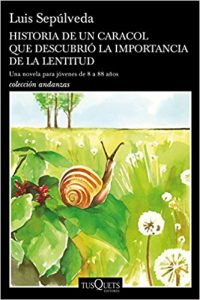The fable is a great literary tool that allows the writer to fiction while spreading an existentialist, ethical, social or even political ideology. The touch of abstraction that the personalization of the animals implies, the exercise of viewing the plot from a transformative perspective such as that of a supposed animal loaded with human behaviors takes us away and facilitates a broader and more nuanced viewing of the plot.
The result is always a double reading, an adventure in its strictest sense (as is the recent case of Tough dogs don't dance, by Pérez Reverte) and a metaphorical interpretation of any human aspect, seen without the possibility of prejudices or labels. A snail that talks, that meditates its reality and that makes its most reasoned decisions does not dispose us to easy empathy, so we simply read and see how a psychoanalyst would do with a giraffe lying on his couch.
And yet from the strangeness of this type of reading, magic is born, the message launched is more powerful, the usual moral in the discovery of the most profoundly human transmuted into the animal shakes our consciences in a clairvoyant way.
The most emblematic case of adult fables was that great book Rebelion on the farmby George Orwell. Thanks to which it was possible to see with another prism the drift of communism represented in that farm full of slogans. Now it is Luis Sepúlveda's turn with his "Story of a snail who discovered the importance of slowness"
The main snail in this story is just that, just an anonymous snail in a country full of snails. In the most unexpected way, in our snail friend that spark of consciousness is awakened, of a particular identity above the suffocating sense of belonging, of the accepted condition of normality (does it sound like you?). Initially, what strikes our snail friend the most is the lack of a name, as well as that kind of condemnation, the vital burden of the house on their backs that makes them move extremely slowly. Under these conditions, the first name that we can give our snail is "Rebelde". And as often happens in other cases of illustrious rebels, they tend to be characters who incite revolution, insurrection, and a rethinking of the status quo.
Nothing better than traveling to see the world, treasure experiences and soak up other realities. Beyond the land of snails, Rebelde will meet many other beings with their different ways of seeing the world.
A critique of annulling ethnocentrism, a fanciful journey towards the discovery of the most particular identity as a foundation to become the best of you and face any type of conflict as a Rebel.
You can now buy the novel Story of a snail that discovered the importance of slowness, the book of Luis Sepúlveda, here:


i am from Italy hello. Can you help me translate? / rardor